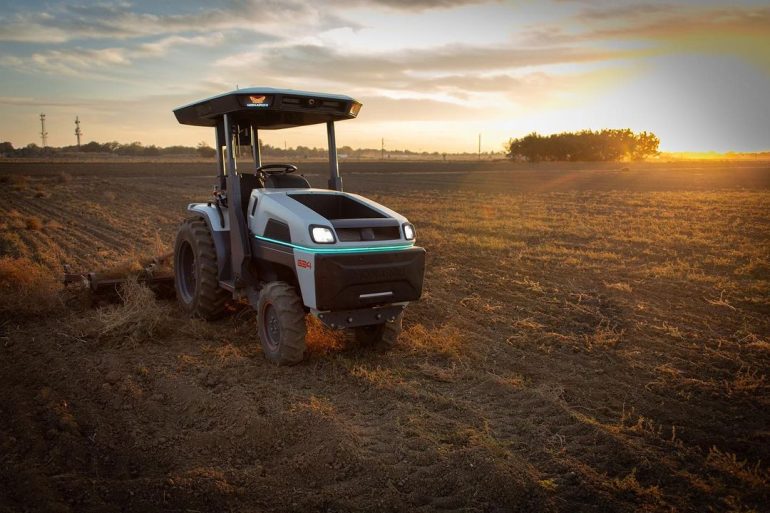- Monarch Tractor raises $133 million in Series C funding, the largest for agricultural robotics.
- Funding led by Astanor and HH-CTBC Partnership L.P., with contributions from At One Ventures, PMV, and The Welvaartsfonds.
- Total funding exceeds $220 million, valuing the company at over $500 million.
- MK-V, Monarch’s electric driver-optional tractor, launched in 2022, integrates the AI management suite WingspanAI.
- WingspanAI provides data insights on vehicle positioning, crop imagery, and automated operations via a single app.
- CEO Praveen Penmetsa emphasizes AI and electrification as key to agricultural sustainability and addressing industry challenges.
- MK-V can operate autonomously or with manual control; over 400 units have been deployed.
- The tractors have offset more than 850 tons of CO2 emissions over 42,000 hours of operation.
- Monarch’s tractors are used in 12 states and three countries, supporting various agricultural needs.
- New funding will support the development of AutoDrive and expand market reach.
Main AI News:
Monarch Tractor has made headlines with its recent Series C funding round, securing $133 million in what is now the largest investment in agricultural robotics. This significant funding boost was spearheaded by Astanor and HH-CTBC Partnership L.P., with additional backing from At One Ventures, PMV, and The Welvaartsfonds. With this latest round, Monarch Tractor’s total funding surpasses $220 million, pushing the company’s valuation to over $500 million.
The flagship MK-V tractor, launched in 2022, exemplifies Monarch’s commitment to innovation. This electric, driver-optional vehicle integrates WingspanAI, a sophisticated AI management suite that offers extensive data insights into farm operations. WingspanAI enables users to track vehicle positions, collect crop images, and manage automated operations through a single comprehensive app.
Praveen Penmetsa, co-founder and CEO of Monarch Tractor, highlighted the transformative potential of AI and electrification in agriculture. He pointed out the sector’s critical challenges, including profitability issues, labor shortages, worker safety concerns, and the pressures of meeting sustainability demands.
WingspanAI enhances operational efficiency by allowing farmers to manage entire fleets of tractors simultaneously. It offers detailed visualizations of potential field routes and interactions with crops and equipment. The system also keeps comprehensive records of operations and provides previews and alerts for future and past events.
While the MK-V can operate autonomously along pre-set routes and visible crop rows, it also allows operators to take control during complex maneuvers. Since its introduction, Monarch has delivered over 400 MK-V tractors, which have collectively offset more than 850 tons of CO2 emissions over 42,000 operational hours.
The tractors have been deployed across 12 U.S. states and three countries, serving diverse agricultural needs from vineyards to land management. With the new funding, Monarch Tractor plans to further develop its AutoDrive autonomous operations feature, aiming to expand its market presence and enhance the platform’s capabilities for various agricultural sectors. This investment underscores Monarch’s commitment to driving sustainable and technologically advanced solutions in farming.
Conclusion:
Monarch Tractor’s substantial Series C funding underscores a significant milestone in agricultural robotics, reflecting growing investor confidence in AI-driven, sustainable farming technologies. This financial boost not only enhances Monarch’s capability to innovate but also sets a precedent for the industry’s shift towards electrification and automation. The expanded development of features like AutoDrive and the broad market reach of Monarch’s products highlight the increasing importance of AI in optimizing agricultural practices, offering both environmental and operational benefits. As the sector adapts to these advancements, other companies will likely follow suit, accelerating the adoption of smart, sustainable solutions in agriculture.

